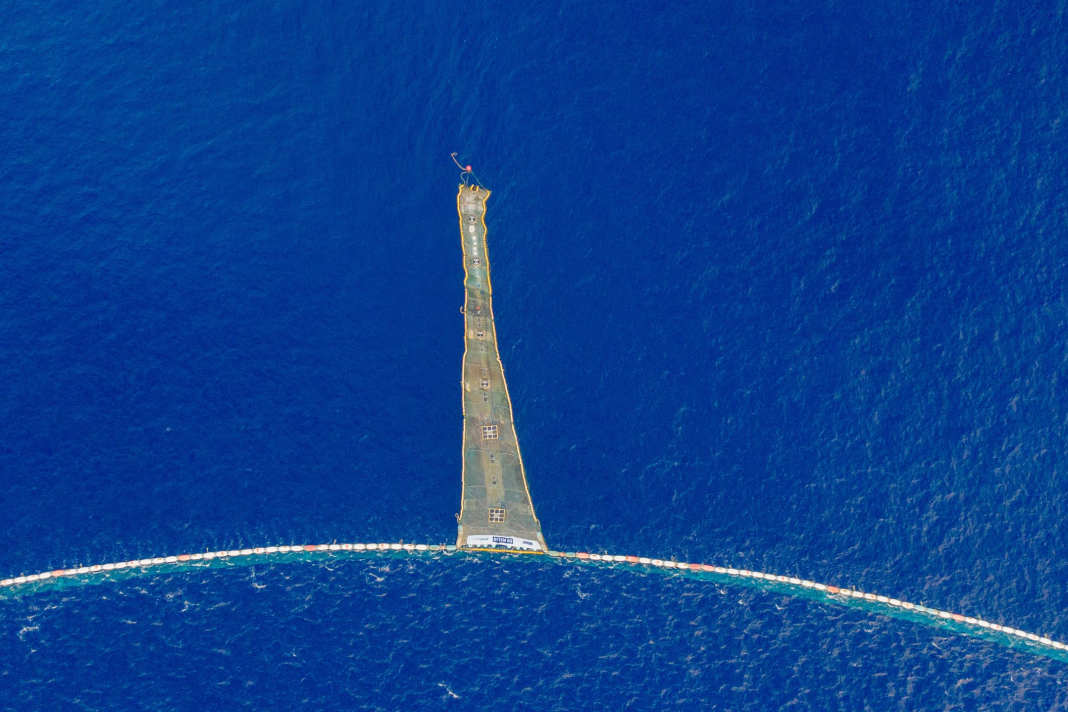Environment: The Ocean Cleanup records successes in the fight against plastic waste
Andreas Fritsch
· 17.06.2024






The environmental project of the NGO "The Ocean Cleanup"which has set itself the task of ridding the world's oceans of as much plastic waste as possible, draws a first summary after almost five years on the occasion of the 100th "fishing trip" in the Pacific. The ever-improving system, now in its third year, has succeeded in retrieving 10,000 tonnes of plastic waste from the Pacific. The Great Pacific Garbage Circel circulates on the surface of the ocean. It is the largest of five such plastic waste whirlpools that have formed on Earth. Two of them are also in the Atlantic. As a teenager, Bojan Slat saw more plastic waste than fish while snorkelling in the Aegean Sea and indignantly founded the initiative, which now employs over 120 engineers, scientists, technicians and many volunteers to achieve the goal they have set themselves.
By 2040, 90 per cent of marine litter is to be fished out
By 2040, 90 per cent of large plastic is to be fished out of the oceans so that it does not decompose into highly problematic micro-plastic that pollutes the oceans and animals and ends up on our plates as poison in fish.
At this point, you will find external content that complements the article. You can display and hide it with a click.
The Ocean Cleanup implements new strategy for river courses
At the same time, the organisation led by Bojan Slat, now an adult, who started the project in 2013 as a 16-year-old teenager with a lot of support, has expanded its strategy. As it has been proven that most of the waste is discharged via large rivers worldwide, so-called "interceptor" ships and barriers were built. They now float in 15 estuaries in eight countries and fish out the plastic before it reaches the oceans.
At this point, you will find external content that complements the article. You can display and hide it with a click.
The team's videos impressively demonstrate how alarmingly high the plastic flood is in many places and how important it is to combat it. In one of the videos, local beach visitors off the American west coast are asked whether they have noticed a difference since an "interceptor" was installed at the mouth of a large river in California. Almost all of them confirm that there is significantly less plastic in the water and, above all, on the beach.
Over the years, the project has developed enormously and the technology is also advancing rapidly: the catching device of the offshore gear has been improved so that fish and other marine life can escape death in the net even better thanks to specially installed escape compartments. In addition, the two trawlers tow the gear very slowly to make it easier for animals to escape.
More on the topic:
The project is becoming increasingly recognised worldwide
The work of the NGO is also becoming increasingly recognised worldwide. Slat and his fellow campaigners have now been honoured with dozens of environmental awards, and even the UN has honoured the Croatian. He works together with a network of top universities around the world and the recycling of the plastic he catches is now also well organised.
This is good proof that action can indeed make a big difference. In the meantime, countries such as the EU are also successfully taking the first steps against plastic waste by gradually banning plastic bags, drinking straws and disposable crockery. Of course, this is just the beginning of a necessary circular economy, but such initiatives and the images of mountains of rubbish are encouraging and should also increase people's willingness to do without more plastic in their everyday lives.
